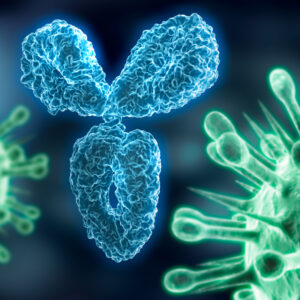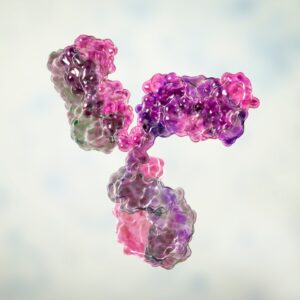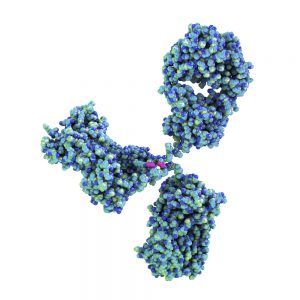Legionella
The bacterium L. pneumophila was first identified in 1977, as the cause of an outbreak of severe pneumonia in a convention centre in the USA in 1976. It has since been associated with outbreaks linked to poorly maintained artificial water systems, particularly cooling towers or evaporative condensers associated with air conditioning and industrial cooling, hot and cold water systems in public and private buildings, and whirlpool spas.
Our monoclonal antibodies and native antigen can be used in support of assay development and R&D into Legionella infection. We also provide a novel system for species-specific detection and labeling of L. pneumophila which can be used with a range of tags for purification and microscopic imaging.
Legionella background
L. pneumophila is an opportunistic intracellular pathogen that was first recognised in a group of individuals, presenting with a lung infection, who had attended a convention in Philadelphia in 1976. It is the causative agent of a severe type of pneumonia referred to as Legionnaires’ disease. The symptoms of Legionnaires’ disease include shortness of breath, cough, headache, fever and muscle ache, which can occur 2 – 10 days after exposure. Complications associated with infection may result in death. L. pneumophila may also cause a mild form of disease known as Pontiac fever, which is self-limiting and doesn’t require hospitalisation (CDC). Both forms of the disease may also be referred to as Legionellosis.
Legionella Antigens
We are pleased to offer a native extract of inactivated Legionella pneumophila antigen taken from culture. No vaccine is currently available for legionellosis and it is hoped that these reagents will enable the research community to develop new serological assays and vaccine candidates for future use.
Legionella Antibodies
We offer a pair of monoclonal antibodies specific for Legionella detection, suitable for use in immunoassay development.
Questions?
Check out our FAQ section for answers to the most frequently asked questions about our website and company.




